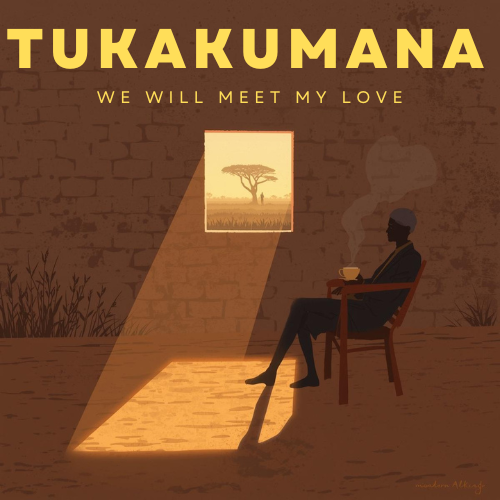Zambia’s New Cyber Laws Explained: What You Should Know Before You Post That Meme
So, you’re about to hit “send” on that slightly spicy meme about a politician… but then you pause. Wait—didn’t Zambia pass some new cyber laws? Could someone actually arrest you for a WhatsApp forward?
Welcome to the digital age, where the rules of engagement aren’t just about Wi-Fi passwords—they’re written in Parliament.
Let’s break down the Cyber Security Act and the Cyber Crimes Act, both of which came into force in April 2025, replacing the controversial Cyber Security and Cyber Crimes Act of 2021.
What Are These New Acts All About?
Let’s start with a metaphor.
Imagine the internet is like the busy Chisokone Kitwe marketplace. You’ve got traders (businesses), gossipers (social media users), hawkers (scammers), and even pickpockets (hackers). Everyone’s shouting, selling, hustling… and yes, watching.
Now imagine the government decides to appoint new security guards, install CCTV cameras, set market hours, and issue rules for what can and can’t be sold or said. That’s essentially what Zambia’s new cyber laws are doing.
The Cyber Security Act (Act No. 3 of 2025)
This law is all about keeping the digital marketplace secure. It creates:
The Zambia Cyber Security Agency, which reports directly to the President.
A national Cyber Incident Response Team (CIRT) to jump into action during cyberattacks.
Regulations for critical infrastructure like banks, hospitals, and telecoms—making sure they follow strict cybersecurity rules.
A Central Monitoring Centre, where all lawful digital surveillance is coordinated.
It also requires companies offering cybersecurity services to be licensed, and gives inspectors powers to investigate cyber incidents—even allowing search and seizure with a warrant.
The Cyber Crimes Act (Act No. 4 of 2025)
This one handles the bad guys in the digital world. It criminalizes:
Hacking, phishing, and identity theft
Online harassment, cyberbullying, and false news
Child exploitation, cyber extortion, and spreading malware
Using the internet for terrorism, trafficking, or inciting violence
Basically, if you’re using a computer or smartphone for shady stuff, this Act covers it.
Zambia in Global Context: Not Alone in This Game
Zambia’s move isn’t unique. Across Africa and the world, countries are scrambling to legislate the digital space.
In Africa:
Kenya has the Computer Misuse and Cybercrimes Act, with mixed reviews from civil rights groups.
South Africa has the Cybercrimes Act, plus POPIA for data protection.
Nigeria introduced similar laws but faced criticism over vague definitions and enforcement tactics.
Globally:
The European Union has the General Data Protection Regulation (GDPR), a gold standard for privacy.
India’s IT Act and recent amendments give the government sweeping powers for surveillance.
The U.S. is still figuring out how to regulate Big Tech, but laws like FISA give the NSA plenty of eyes on the internet.
Zambia is in step with global trends, but the key difference is in how these laws are implemented and monitored.
👍 The Good: Why These Acts Matter
Protecting You From Scammers
Ever lost airtime to a fake promotion? Or got duped on Facebook Marketplace? These laws help crack down on fraud and phishing schemes.Guarding Our Critical Systems
Hospitals, banks, and utilities are now required to have tighter cyber defenses. That’s good news for national stability.Fighting Online Abuse
From revenge porn to cyberbullying, the Acts criminalize digital harassment—especially against women, children, and minorities.Keeping Pace With the Digital World
Zambia is moving forward in the fourth industrial revolution. These laws are the scaffolding for a safer digital economy.
👎 The Concerns: Why Some People Are Nervous
Surveillance Powers
The government has created a Central Monitoring Centre that can intercept communications—with a judge’s approval. While intended for security, there are concerns about misuse.Freedom of Speech Risks
Terms like “false information” can be vague. Critics worry that the law could be used to silence dissent or satire—especially around elections.Too Much Power, Too Little Oversight
The Cyber Security Agency reports directly to the President. There’s no independent oversight board to keep these powers in check.Impact on Startups & Techies
The licensing requirements for cybersecurity providers could make it harder for small tech firms or ethical hackers to operate.
Real-Life Example: Could You Get Arrested for a Meme?
Short answer: It depends.
If your meme is:
Spreading misinformation (especially if it’s political or damaging)
Harassing someone
Invading someone’s privacy
…then yes, it could be used as evidence. But posting a funny picture of a goat in sunglasses? You’re probably safe.
What Do Zambians Think?
On the street, opinion is split.
Miriam, a student from Mulungushi University, says:
“It’s good to have protection, but I don’t want to feel like Big Brother is reading my texts.”
Tinashe, a Lusaka entrepreneur, adds:
“I’ve lost clients to email scams. I want criminals punished—but not at the cost of free speech.”
And that’s the balancing act: security vs. liberty.
How You Can Protect Yourself
Use strong passwords and two-factor authentication
Think before you click or forward something
Don’t post anything you wouldn’t want read in court!
Read the law—yes, really. It’s dense, but it’s your right to know how you’re governed.
What Happens Next?
These Acts are now law—but laws can be changed.
Civil society groups like Chapter One Foundation and CIPESA are calling for more oversight and clearer definitions in the Acts. Parliamentary reviews and amendments may follow, especially if public pressure builds.
In the meantime, Zambia is testing the waters of 21st-century governance.
Final Word: Tune In, Speak Out
Want to hear more? We cover this—and more—in our latest KitweOnline Podcast episode. It’s available now on YouTube, Spotify, and right here on the blog.
Grab your headphones, pour some sweet tea, and listen in on the conversation that’s shaping your digital rights.
What do you think? Are these laws protecting you—or watching you? Drop a comment below!



